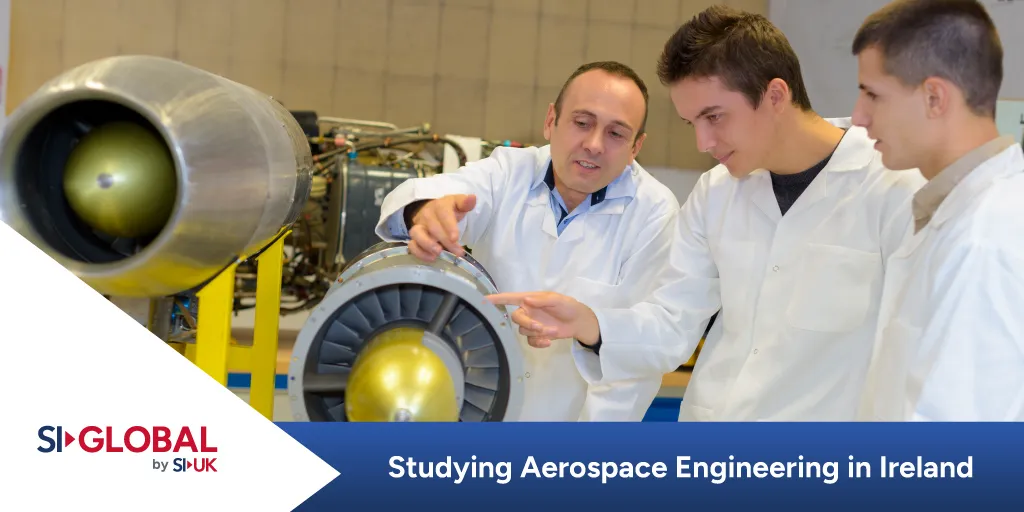With a strong focus on innovation and technology within its education institutes, Ireland offers a fertile ground for developing the skills and knowledge essential for a successful career in aerospace engineering.
This blog will explore the advantages of pursuing an aerospace engineering degree in Ireland, highlighting the top institutions renowned for their exceptional courses. These institutions provide rigorous academic curricula and practical experience, ensuring students are well-equipped to tackle the aerospace industry's challenges.
Discover why Ireland is becoming a top choice for aspiring aerospace engineers, whether you're just starting your academic journey or looking to specialise further and take the first step toward a soaring career in this dynamic field. Begin your journey with a free consultation.

Ireland's Best Aerospace Engineering Courses
- University of Limerick
The Aeronautical Engineering department at the University of Limerick (UL) offers both Bachelor of Engineering (B.E.) and Master of Engineering (M.E.) programmes, lasting 4 and 5 years respectively. Limerick's aerospace engineering courses are renowned across Europe and are supported by cutting-edge facilities such as wind tunnels and composite manufacturing equipment. It offers excellent job prospects, with over 70% of graduates working in the aerospace industry and 63% residing in Ireland.
The course provides a comprehensive and practical study covering aircraft design, aerodynamics, structures, propulsion, control, materials, avionics, business, and maintenance, equipping graduates to work in various aerospace sectors. The first two years focus on foundational engineering disciplines, including Air Transportation Management, Mathematics, Thermodynamics, Materials Science, and more. An eight-month industry placement at the end of the second year enhances practical experience, with students often placed in prestigious companies like Boeing and Airbus.
Top-performing students in the third year can spend a semester at esteemed institutions such as Embry-Riddle Aeronautical University in Florida or Georgia Institute of Technology in Atlanta.
Course to consider: Bachelor/Masters of Engineering in Aeronautical Engineering
- South East Technological University
The Bachelor of Engineering in Aerospace Engineering at South East Technological University is a Level 8 course that lasts four years. The programme covers aerial and space vehicle design, development, and analysis, integrating engineering principles with hands-on experience. Students utilise tools like Solidworks, Ansys, and Matlab in facilities such as flight simulators and wind tunnels. The course includes aerodynamics, propulsion, and control systems, with a work placement in the third year. This programme is ideal for those passionate about designing and analysing aerial vehicles.
Course to consider: BEng (Hons) Aerospace Engineering
- University College Dublin
Space science is adjacent to the study of aerospace engineering, and University College Dublin provided an MSc in Space Science & Technology. The course prepares students for the burgeoning global space sector, with Ireland's active participation in the European Space Agency and involvement in major international missions. Highlights include a CubeSat lab, payload development, satellite systems engineering, and an international mission design project. A 3-month internship provides industry-relevant training, with placements at ESA, NASA-Ames, and other leading organisations.
Students can tailor their curriculum through optional modules and participate in workshops with senior industry practitioners. Careers span satellite operations, mission specialist roles, and systems engineering with employers such as Spire, ESA, DLR, and Skytek.
Course to consider: MSc Space Science and Technology
Study Aerospace Engineering in Ireland
If you want to study in Ireland, arrange a free consultation with SI-Global today. Our educational consultants will discuss your study options and help you decide on the best course that benefits your long term future.











